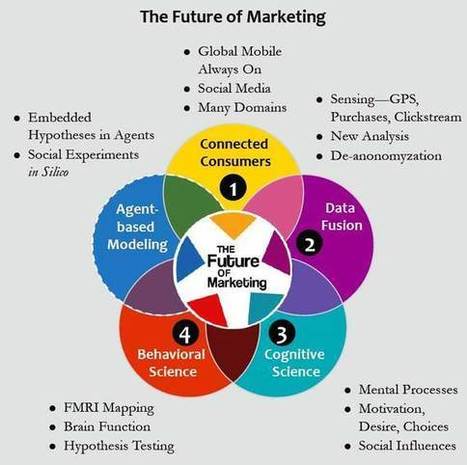2009: "SOCIAL FUSION"
Five years ago, as part of Monitor Talent's annual gathering of thought leaders, we gathered a set of marketing and social media experts to discuss a hypothesis about how current trends would affect marketing.
We met to explore a vision of the future that we labeled "Social Fusion." The term derived from the then-new explosion of social media and the growing capabilities for "data fusion," the integration of multiple data sets to create a picture of an individual. Now we call that "Big Data."
We began with a five-step argument (see chart below):
Consumers had begun to continually describe their own behavior in media observable to marketers.Additional information about them was being ubiquitously through their clickstreams, cellphones and credit cards (now we can add FitBits and Nests), and the technology to fuse these data was developing quickly. Together, these trends implied that robust characterizations of large numbers of consumers would become inexpensive, and would be continually updated.Advances in cognitive science were providing insights into how the mind makes the choices it does, andBehavioral scientists (including behavioral economists) were able to test these insights experimentally. Because of trends #1 and #2, the hypotheses could be tested beyond experimental settings like FMRI machines (cognitive scientists) and rooms full of starving students (behavioral economists).Finally, through the use of agent-based modeling, it was becoming possible to simulate the interaction of heterogeneous individuals in the real world to validate these hypotheses -- and test marketing programs.



 Your new post is loading...
Your new post is loading...







